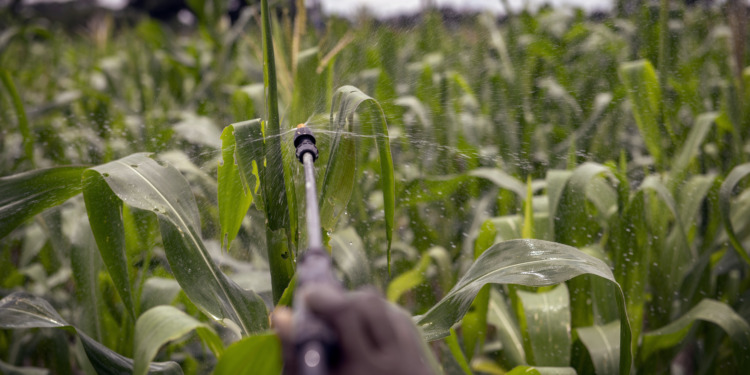In response to a 2017 request by the UN Environment Assembly (UNEA), the UN Environment Programme (UNEP), in collaboration with the World Health Organization (WHO) and the Food and Agriculture Organization of the UN (FAO), produced a report on the adverse impacts of pesticides and fertilizers and what can be done to minimize them.
The ‘Synthesis Report on the Environmental and Health Impacts of Pesticides and Fertilizers and Ways to Minimize Them’ presents a comprehensive review of available information on environmental and health effects of pesticides and fertilizers and their potential impacts, as well as knowledge gaps and suggested actions to fill them. The report also reviews relevant management practices, legislation, and policies.
Key findings from the report include that:
- global demand, production, and use of pesticides and fertilizers have expanded during the past decades, with combined global sales growing at about 4.1% per year and projected to reach USD 309 billion by 2025;
- food demand is driving the production and use of pesticides and fertilizers, while demand for crops used for animal feed, fibers, fuels, and feedstocks is also growing;
- links exist between exposure to pesticides and certain health outcomes, with an estimated 385 million cases of pesticide poisonings and 11,000 deaths every year;
- pesticides and their degradation products are ubiquitous in the environment, often detected at levels exceeding environmental standards;
- adverse impacts of fertilizers are mainly caused by their excessive and inefficient use, resulting in nutrient losses to the environment, drinking water contamination, and eutrophication of freshwater systems and coastal zones; and
- knowledge gaps still exist that hinder a comprehensive understanding of some mechanisms and processes leading to the adverse impacts of pesticides and fertilizers.
The report notes that while many studies address the adverse environmental and human health impacts of pesticides and fertilizers, more information is available on pesticides. It emphasizes that the remaining gaps in knowledge and information on adverse impacts must be addressed to develop effective national and regional management policies. The report discusses information and knowledge gaps with respect to both the environmental and health effects of pesticides, including those relating to: systematic reviews and monitoring, and environmental risk assessments; toxicological assessments and evaluations; and the lack of disaggregated data for potentially sensitive populations. Information gaps also remain with respect to the status of fertilizer policies at the global, regional, and national levels.
Related Articles: EU Unveils Law to Halt Biodiversity Loss and Improve Food Systems | How Much Does it Cost to Let a Species Go Extinct? | World’s Best Policies For Tackling Toxic Chemical Exposure Honoured With the Future Policy Award | Insects Armageddon Caused by Climate Change
The report also describes a range of priority actions to reduce adverse impacts and address knowledge gaps, focusing on methodologies, tools, approaches, and policies to strengthen pesticide and fertilizer management.
On strengthening pesticide management, suggested actions relate to, among others: strengthening the control of pesticide distribution and use and enforcement of legislation; minimizing or eliminating risks posed by highly hazardous pesticides (HHPs); developing and accessing low-risk pesticides; addressing trade in illegal and counterfeit pesticides; and adopting extended product responsibility (EPR) by pesticide manufacturers and traders.
Priority actions to strengthen fertilizer and nutrient management include: national policies for quality control of fertilizers; policies to support sustainable and safe fertilizer use; scaling up training in fertilizer and nutrient management; and ensuring suitable and affordable fertilizers are accessible, particularly in low- and middle-income countries (LMICs).
The report also suggests more transformative actions, including: incentivizing healthy and sustainable consumer choices; adopting ecosystem-based approaches; employing economic instruments to ensure a level playing field for greener products and approaches; adopting integrated and life cycle approaches; strengthening standards; and adopting corporate policies for sustainable supply chain management.
— —
This article was originally published by the International Institute for Sustainable Development (IISD) and is republished here as part of an editorial collaboration with IISD.
Editor’s Note: The opinions expressed here by the authors are their own, not those of Impakter.com — In the Featured Photo: Sprayers using pesticides against fall armyworm, Nigeria. Featured Photo Credit: C. de Bode/CGIAR.










